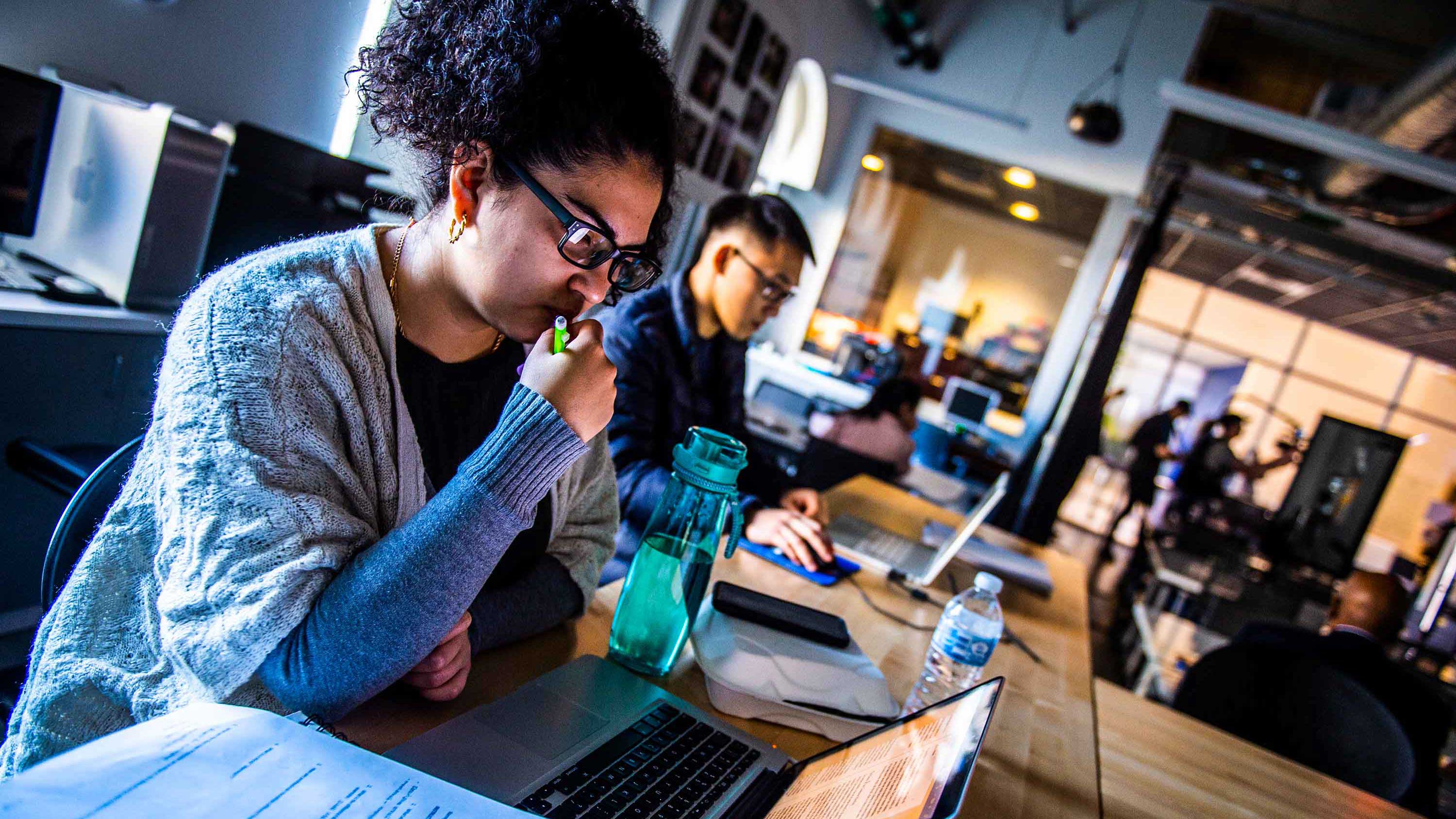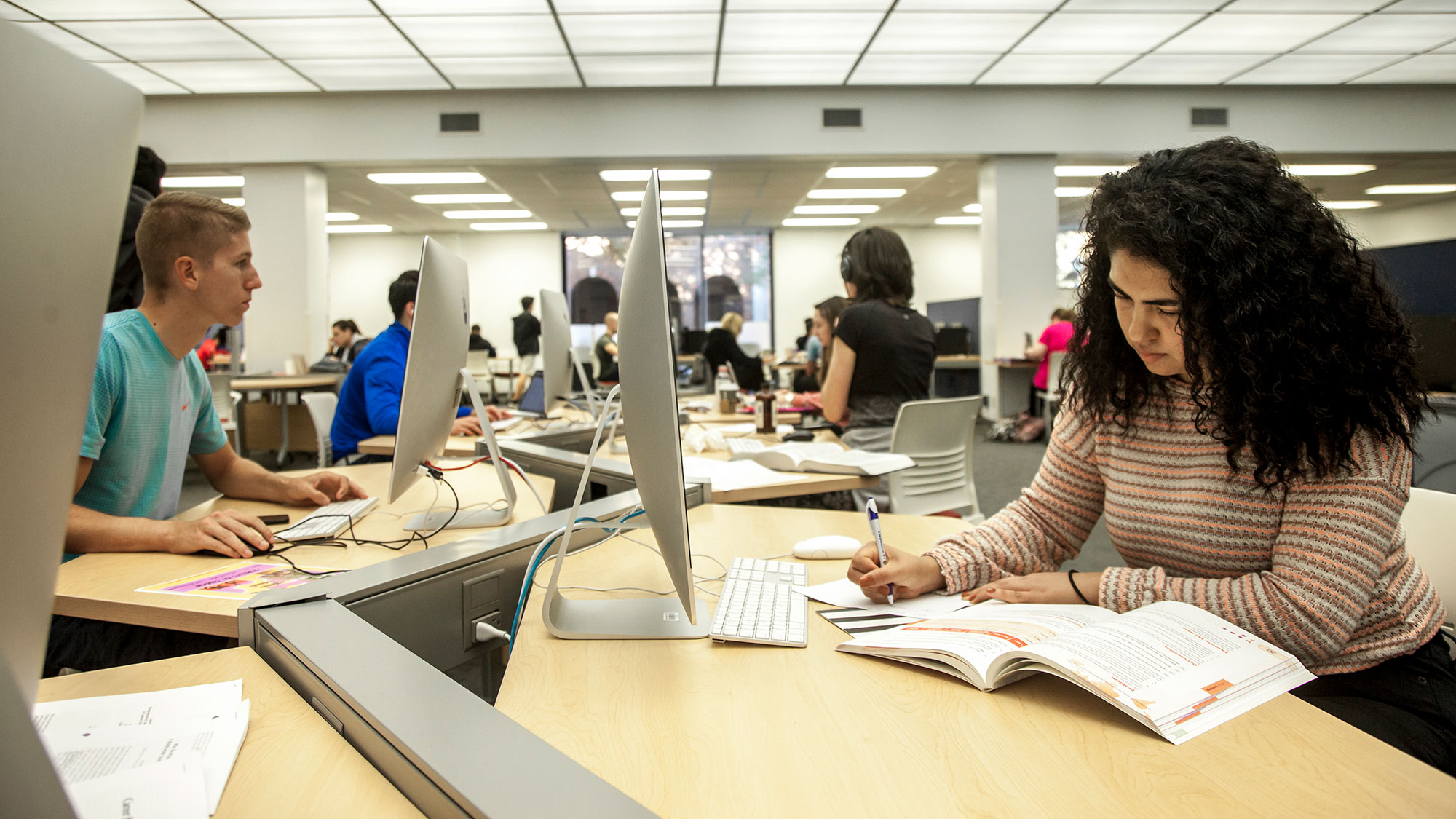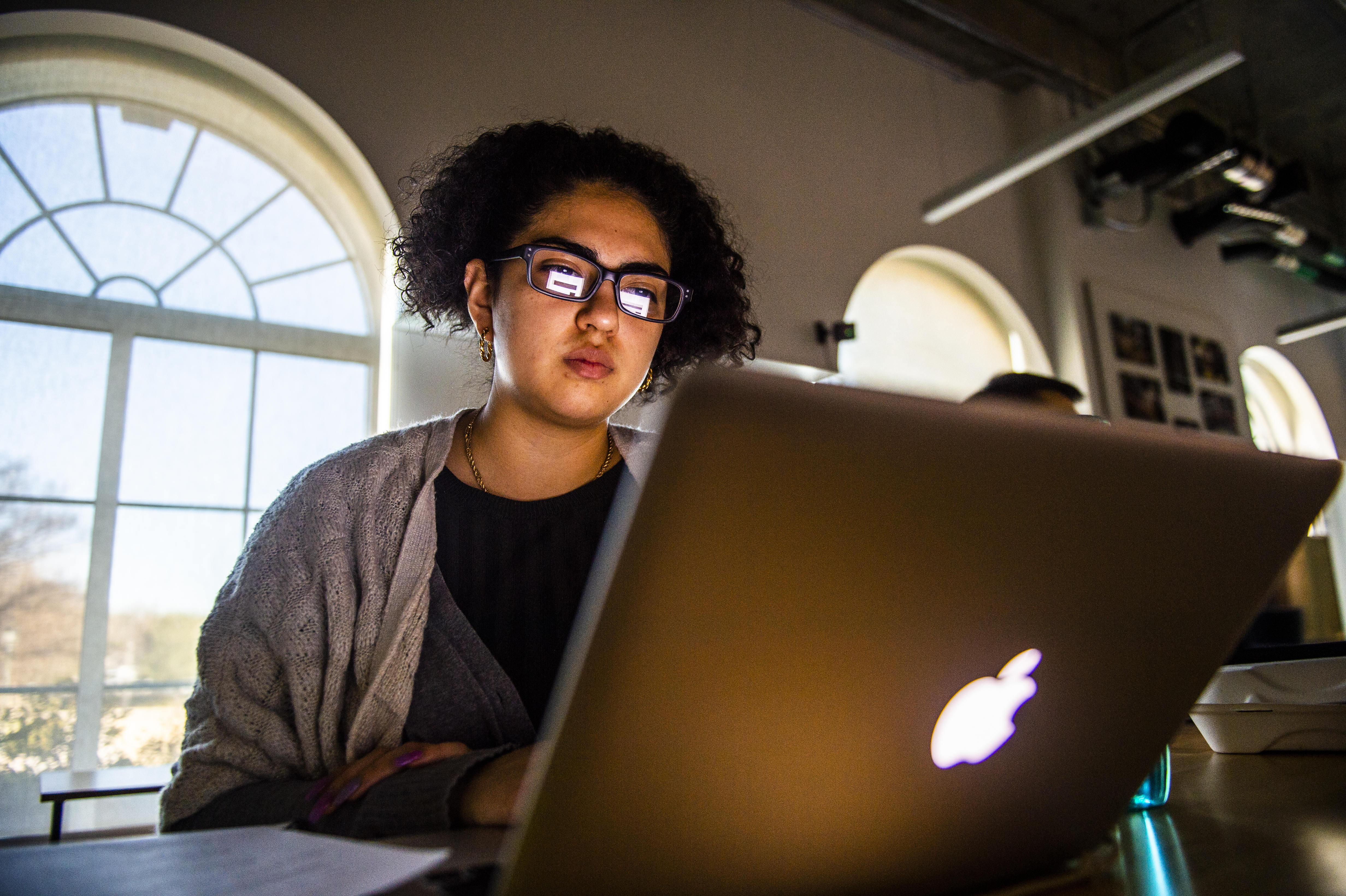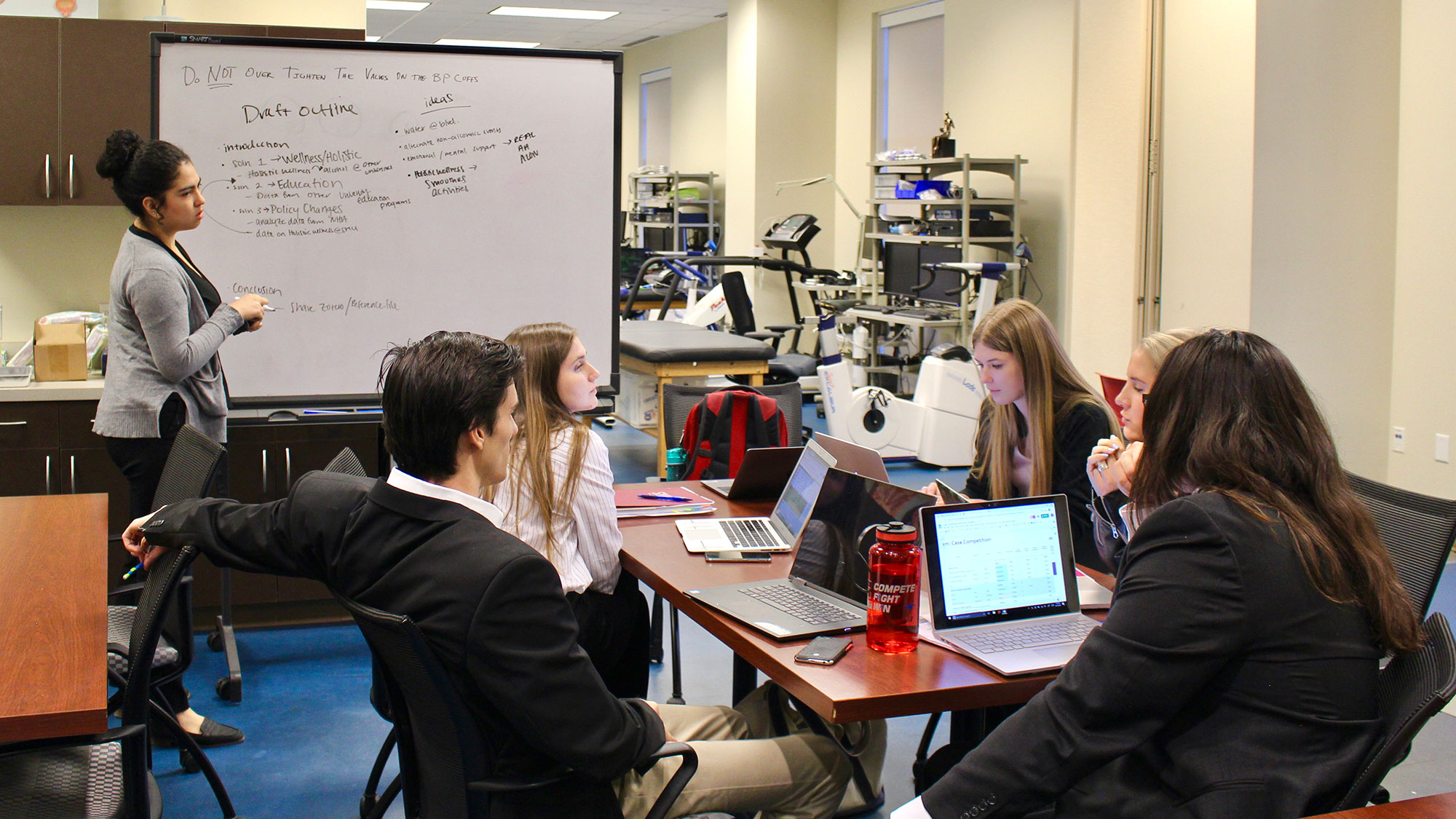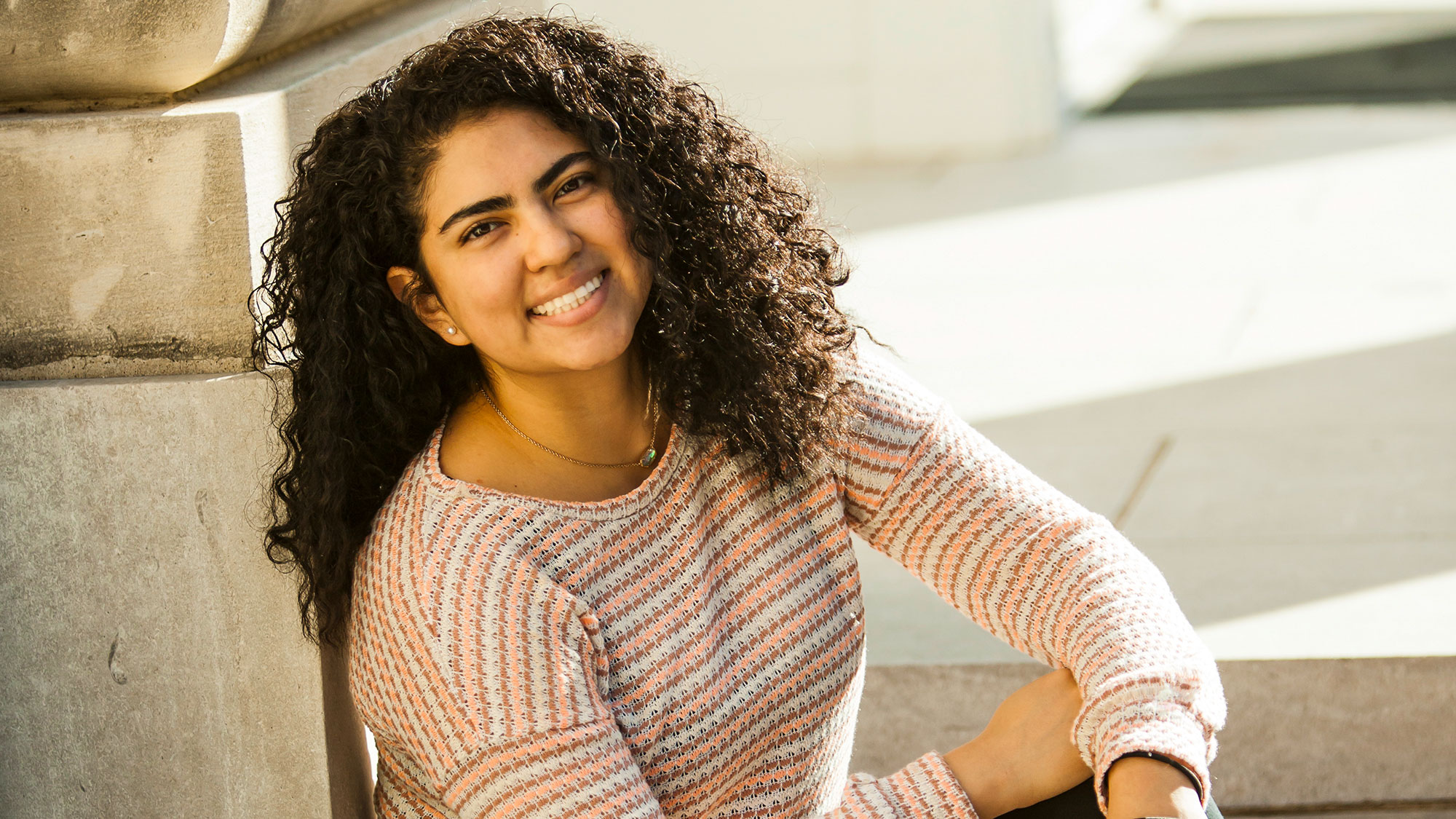
Kaitlyn Contreras ’20
First in her family, Kaitlyn Contreras finds her place
Just one phone call stood between Kaitlyn Contreras and joining the U.S. Army – a call from the SMU Admissions Office.
The daughter of a single mom who worked two jobs to support her family, Kaitlyn was determined to attend college. The education benefits awarded to service members and veterans offered one avenue to get there.
“I knew I wanted to go to college; I just didn’t know how,” she says.
She remembers exactly where she was when she got the call from SMU, and she remembers how she felt. “I cried! I didn’t think I was going to get the scholarship, but before I went to the Army recruiting office, my mother made me wait and pray until I heard from SMU,” Kaitlyn says.
Now an SMU senior, Kaitlyn is a first-generation honor roll student attending the University on a full scholarship majoring in health and society, presenting her research at a national conference and preparing to take the MCAT exam for her medical school application. But she’s the first to say it hasn’t always been easy.
Kaitlyn’s grandmother, Maria de Jesus Moradel, an immigrant from Honduras, took care of her and three younger siblings after school. But instead of sending her to join neighborhood kids playing outside, the grandmother she called “Lita” kept her inside to work on her homework. And when her homework was done, Kaitlyn read aloud to her Lita.
“My grandmother never went to school, never learned to read or write,” Kaitlyn says. “But she taught me to always ask questions.”
As an eighth-grader, Kaitlyn began asking questions, seeking to attend a high school more challenging than her neighborhood school. She applied to three different high schools and was accepted at North Dallas High School in Dallas ISD.
It was a one-hour bus and train ride from her home. What Kaitlyn couldn’t know then was that being willing to make the two-hour daily commute to a more challenging school would open the door to unique opportunities.
In her ninth-grade social studies class, she learned about SMU’s Upward Bound college access program. Upward Bound is a U.S. Department of Education college access program created in 1964 to help high school students who are from low-income families and from families where neither parent holds a bachelor's degree prepare for college. SMU is one of the many U.S. universities participating in Upward Bound. Contreras applied to the program, and was accepted. She soon began attending regular after-school tutoring sessions and left home at 7 a.m. to attend monthly all-day Upward Bound Saturday seminars at SMU on topics like the college admissions process and financial aid.
“Kaitlyn had very ambitious goals, even in ninth grade,” says Bridgette Miles, SMU Upward Bound senior program specialist and her tutor at North Dallas High School.
“I knew I was going to college somehow,” Kaitlyn says.
Kaitlyn explored all options for college scholarships – including joining the North Dallas High School girls’ wrestling team for a potential athletic scholarship. But she also followed Miles’ advice to concentrate on achieving good grades, and listened when she told her of a unique SMU scholarship.
A LEGACY GIVES KAITLYN WINGS
In 1998, in appreciation for the education he received at North Dallas High School, Robert H. Dedman Sr. endowed two full scholarships – covering SMU tuition, fees, room and board – to graduates of the school. Dedman, who graduated from North Dallas High School in 1944, earned bachelor’s and law degrees from the University of Texas, then a graduate degree from SMU’s law school.
A successful lawyer and businessman, Dedman founded ClubCorp, a company that owns and manages golf courses and resorts all over the world. As former chair and longtime member of the SMU Board of Trustees, Dedman also endowed SMU’s school of humanities and sciences, Dedman College, and the Dedman School of Law.
Kaitlyn set her sights on the scholarship. Her work paid off on that day in 2016 when SMU called to offer her the Robert H. Dedman North Dallas High School Scholarship.
FINDING A NICHE
Attending college was just what Kaitlyn wanted, but it wasn’t easy. University life created a whole new set of challenges, particularly the rigorous courses and labs required for a pre-med student. Since she was a little girl and her mother woke her at 5 a.m. to get in line for medical care at the East Dallas Agape Clinic, Kaitlyn had wanted to become a doctor to serve low-income patients. But college courses were much more difficult than her high school courses.
“The transition was hard,” she said. “I never had to study before – I had to learn how to study.”
“Kaitlyn did so well in high school, her struggles in college were a blow to her self-confidence,” says Jackie Lowrey, a mentor to Kaitlyn and manager of SMU’s McNair Scholars program. “Being a first-generation student just added another layer of stress.”
But Kaitlyn approached college the same way she approached high school: She sought opportunities for growth and followed through with time and commitment. With the encouragement of her Upward Bound mentors, Kaitlyn applied to become a McNair Scholar, a U.S. Department of Education program designed to prepare undergraduate students for doctoral studies. First-generation college students and underrepresented minority students interested in graduate studies are eligible for the program.
The McNair Scholar application is rigorous, Lowrey says. But it mimics the process to apply to graduate school. Once accepted, students receive support to conduct their own research. Kaitlyn’s research, conducted under the supervision of faculty mentor Eric Bing, professor of global health in SMU’s Simmons School For Education and Human Development, has included work on the development of a breast cancer screening app, virtual reality surgery training and virtual reality meditation training for those with anxiety or ADHD.
Lowrey has met monthly with Kaitlyn since she was a first-year student. ”Every year I’ve watched her open up. She is very good about seeking help when she needs it and is passionate about learning.”
Kaitlyn’s decision to minor in human rights also led her to faculty mentors and a close-knit community.
“We tell our students from Day One that they are a family,” says Rick Halperin, director of SMU’s Embrey Human Rights Program. “We encourage them to use our offices to study, relax and socialize.”
Thanks to a human rights scholarship, Kaitlyn traveled outside the United States for the first time on a human rights trip to Israel.
And she relies on her family – her mother, three younger siblings and extended family members who live nearby.
“I love spending time with my family,” she says. “We put our phones away when we eat together, we go to the park to play soccer. My little brothers and sister are my life and soul.”
DEALING WITH DOUBT
In spite of her success at SMU, Kaitlyn experienced the doubt often experienced by first generation college students at many universities – that she wasn’t quite good enough to succeed.
Acknowledging doubt is an important part of mentoring first generation students, says Lowrey.
“When you are the first person in your family to go to college, you are going to hold yourself to a higher standard. I don’t sugarcoat the challenges – I try to build resilience by telling students the truth.”
“At first, I didn’t believe I belonged at SMU,” Kaitlyn says. “But I know God put me here for a good reason.”
And having learned the lesson firsthand, Kaitlyn advises other first-generation students that being different is actually a strength that can be motivating.
“When you start to doubt yourself, find reinforcements. Mentors and a support system can remind you that you are more than capable. Remember, if others can do it, so can you.”
Kaitlyn will be graduating from SMU in spring 2020, and is preparing to apply to medical school the same way she approached high school and college. She spent hours during the summer preparing for the medical school entrance exam, curled up in her favorite study spot in Fondren Library. She has sought advice from mentoring faculty members like Professor Bing. With a medical degree, Ph.D. and an MBA under his belt, Bing knows what he’s talking about when he assures her that she will experience doubt in medical school. Everyone does, he tells her, but he knows she can handle it.
“I’ve learned it’s okay to be afraid and how to use my fear as a drive,” she says. “I definitely believe I can be a doctor.”
